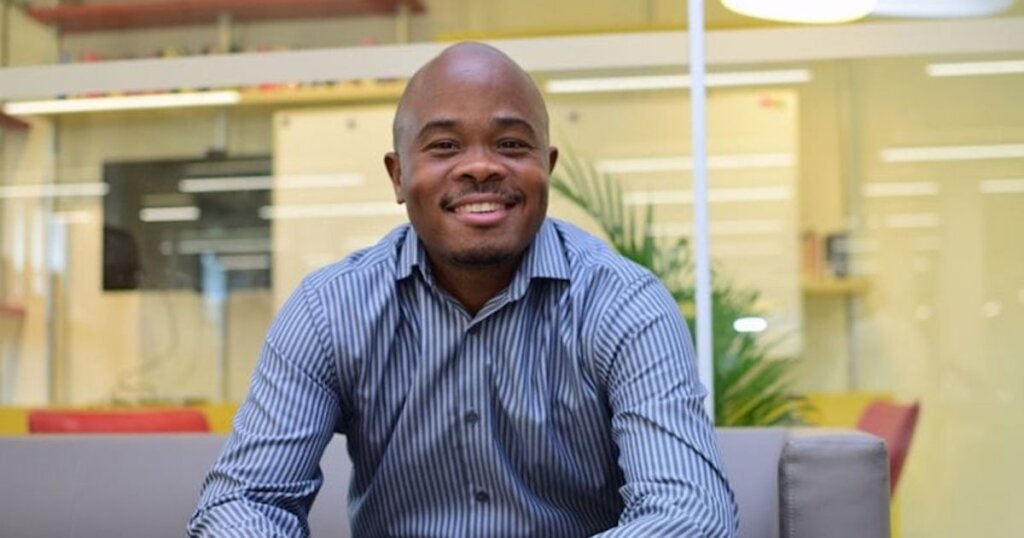Home » Innovative Africa – Communitech
Innovative Africa – Communitech

If constraints drive innovation, then Africa is blessed with plenty of fuel for creative problem solving.
“In Africa we have a lot of constraints," says Fred Swaniker. "We don't have time, we don't have billions of dollars, we don't have lots of investors, so we have to reimagine everything and that will allow us to create new models that the rest of world can learn from.”
The head of the African Leadership Group (ALG) made the comments Thursday as part of a talk he gave at the University of Waterloo’s annual Innovation Summit. Titled the Talent Evolution, the combined virtual and in-person event focused on the changing nature of tech work and the global shortage of tech talent. The summit featured a number of guest speakers and panel discussions.
In his remarks, Swaniker made the case for why Africa could soon become a major source of well-trained tech talent.
The continent has one of the youngest, fastest-growing populations in the world and is on track to reach 1.1 billion people by 2035.
“So, it's mind boggling to me that only 2.6 per cent of software engineers in the world today come from Africa,” Swaniker said.
He and his colleagues are working to change that through a variety of skills-training and leadership programs for their fellow Africans. Thousands of students have already graduated, with thousands more expected to enrol annually.
Born in Ghana, Swaniker said his family lived in several different countries in Africa, often forced to move by wars, coups and political instability. The experience shaped his outlook and kindled a passion to promote change through leadership.
“We have so much potential as a continent but, as I analyzed the challenges that were preventing us from achieving our potential, I would always end up with the root cause being leadership,” he said. “We were spending a lot of time and effort treating the symptoms of ineffective leadership… but (I thought), what if we actually developed leaders who didn't go to war in the first place, so you don't have to worry about the consequences?”
Swaniker studied business at Macalester College in Minnesota and worked for consulting firm McKinsey & Company before earning an MBA from Stanford University.
While at Stanford, he and a friend wrote the business plan for an organization called the African Leadership Academy. The program flourished and has since evolved into an ecosystem of related organizations, including the African Leadership University and a one-year digital-skills training program called ALX.
The ALX uses the same software engineering curriculum as the Holberton School, a project-based private institution launched in Silicon Valley in 2016. The intensive program involves 70 to 100 hours of coding each week, plus three additional elements that Swaniker feels should be essential in any post-secondary learning – leadership training, student work experience and networking opportunities.
Swaniker emphasized what he calls the ALX’s “10/20/70” approach, which is based on studies that found that 10 per cent of what people learn comes from the classroom; 20 per cent comes from peers and mentors; and 70 per cent comes from hands-on experience.
Leadership training is essential to make sure that students understand the importance of values, ethics and communications in business.
“We need people to understand that while technology is a powerful force for good it can also be a powerful force for destruction and evil,” Swaniker said. “And so that entrepreneurial leadership base is very important for us.”
The one-year nature of the ALX program, coupled with its online format, enables the organization to train up thousands of students at a continuous pace, he said.
“Last year we saw the whole continent of Africa develop about 27,000 software engineers. With this new approach that we are running, within a week we enrolled 20,000 software engineers into our program. A year ago, we were training 50 software engineers. Today we're training 51,000. We've grown by over 1,000 times in just 12 months. That's just showing you how much untapped potential for talent is sitting in Africa.”
Swaniker said that the global economy will add another 50 to 80 million technology jobs over the next decade. With aging populations and slowing-population growth in places like India, China, Europe and the U.S., he said employers need to look to new sources of tech talent.
“Africa is slated to be 40 per cent of the world's population by the end of the century,” he said. “By 2035, we will have the largest workforce in the world, 1.1 billion people – bigger than China, bigger than India. And so this, ladies and gentlemen, is what we see as the solution… the biggest single pool of untapped talent is sitting in Africa.”
In addition to the ALX program, the African Leadership University offers three-year degrees based on the same 10/20/70 principle and the importance of student work experience.
Swaniker, an advocate for hands-on learning, praised the University of Waterloo for both its co-op program and the networking opportunities it provides to students.
“Waterloo is a great example of an institution that is actually doing a lot of these things,” he said. “The curriculum in many ways goes beyond the classroom, people get to learn by doing and are connected into this incredible network around the institution – different incubators, accelerators, startup programs and, of course, the co-op program, where people are able to build their networks. So, by the time a young person comes out of Waterloo, they actually have the social capital that they need to be able to thrive.”
Swaniker said that society needs to “reimagine” what is meant by the term “higher education.” While much of the world equates higher education with universities, he said universities are only one form of higher education.
“The entire higher education system globally needs to be reimagined,” he said. “If you think about it, most higher education institutions were built in an era when information was scarce. So you had to go to the university to get knowledge from the head of the professor and from library books... today, a child in a rural area in Africa can get access to more information on their mobile phone than someone who was doing a PhD at Oxford 30 years ago.
“We no longer live in a world where information is scarce,” he continued. “We live in a world where information is ubiquitous, so that changes the role of educational institutions from being the source of knowledge to a space in which young people can engage in knowledge by themselves or where it’s co-created. And so we need to move beyond education as a means to teach facts and figures, but rather with a new purpose, which is learning how to learn and learn how to solve problems.”
Other kinds of higher education models, such as the ALX program, need to be developed to augment traditional universities and address critical skills shortages and challenges like health care, he said.
“The ALX model that I talked about, it's not a university, it’s not a high school. It's a 12-month program where people come in and we’re creating software engineers within 12 months, we’re training data scientists, we’re creating a financial analyst, we’re developing all kinds of talent that the world needs.”
Another change that’s needed, he said, is an emphasis on interdisciplinary studies and learning that is based on problem solving.
“We’ve gotten rid of academic majors,” he said, referring to the African Leadership University. “So instead of having a Bachelor of Science in chemistry, or a Bachelor of Arts in history, we’d rather give a student a list of the seven grand challenges facing Africa and the seven great opportunities. These are big problems that we need to solve, like health care, climate change, infrastructure. And we ask them not to choose a major but to choose a mission, to pick one of these problems that they want to solve and curate their learning experiences around that, so the end goal is to create leaders who are problem-solvers and who have aligned their learning with the purpose.”
Swaniker acknowledged that it is easier for African countries to develop new models for higher education because they aren’t weighed down by a thousand years of educational precedent, as most other regions are.
“We have a clean slate in Africa, we don't have the legacy of the past. We can actually build what institutions of the future need to look like because we don't have 200 years or a thousand years of history that will prevent us from innovating.”
Communitech
https://communitech.ca
"Communitech helps tech-driven companies start, grow and succeed. Communitech was founded in 1997 by a group of entrepreneurs committed to making Waterloo Region a global innovation leader. At the time it was crazy talk, but somehow this community managed to pull it off. Today, Communitech is a public-private innovation hub that supports a community of more than 1400 companies — from startups to scale-ups to large global players. Communitech helps tech companies start, grow and succeed in three distinct ways: - Communitech is a place – the center of gravity for entrepreneurs and innovators. A clubhouse for building cool shit and great companies. - Communitech delivers programs – helping companies at all stages with access to capital, customers and talent. We are here to help them grow and innovate. - Communitech partners in building a world-leading ecosystem – making sure we have all the ingredients (and the brand) to go from a small startup to a global giant."


